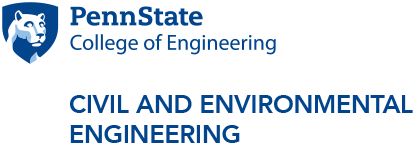CEE Virtual Seminar Series: Simulation of regional post-earthquake recovery for performance-based engineering and resilience
The recording of this seminar is now available.
Abstract: State-of-the-art performance-based earthquake engineering (PBEE) procedures, such as FEMA P-58, generally treat buildings as “islands” with respect to modeling regional impacts and post-earthquake recovery. This talk presents an overview of recent research to advance direct simulation of regional impacts and recovery within a PBEE framework. Specifically, Dr. Baker will demonstrate work to scale single-building performance-based assessments to a regional scale. Also presented are refinements to include the impact of damaged roads and neighboring buildings on repair and recovery timelines. Finally, Dr. Baker will illustrate a coupled assessment of economic and physical impacts in order to account for private-sector decision-making and regional industrial capacity constraints on recovery. Collectively, these developments move us closer to regional-scale performance assessments that can incorporate a broader range of factors in forecasts and thus can support a broader range of decision-making to increase community resilience.

Biography: Dr. Baker is currently a professor in the Department of Civil and Environmental Engineering at Stanford University. His work focuses on the development and use of probabilistic and statistical tools for managing risk due to extreme loads on the built environment. He studies risk to spatially distributed systems, characterization of earthquake ground motions, and probabilistic risk assessments for a number of types of structures. Dr. Baker joined Stanford in 2006 from the Swiss Federal Institute of Technology (ETH Zurich), where he was a visiting researcher in the Department of Structural Engineering. He has a bachelor's degree in mathematics and physics from Whitman College, a master's degree in statistics from Stanford, and master's and doctoral degrees in structural engineering from Stanford. His awards include the Shah Family Innovation Prize from the Earthquake Engineering Research Institute, the CAREER Award from the National Science Foundation, the Early Achievement Research Award from the International Association for Structural Safety and Reliability, the Walter L. Huber Prize from ASCE, the Helmut Krawinkler Award from the Structural Engineers Association of Northern California, and the Eugene L. Grant Award for excellence in teaching from Stanford.
Additional Information:
Lecture begins at 4 p.m. and will be followed by a question and answer session. Event concludes at 5:30 p.m. Registration is required.
Event Contact: Tim Schley




